This post may contain affiliate links. We may receive a small commission, at no cost to you, if you make a purchase. Read Disclosure.
Ethiopia is one of the most vibrant countries in Northern Africa, known for its coffee trade, amazing scenery, fascinating history and unique tribal cultures.
Those looking for an off-the-beaten-path experience in a totally unique and authentic African country, will find all this and more in Ethiopia.
But one should not just venture into Ethiopia without the proper knowledge and guidance from an expert.
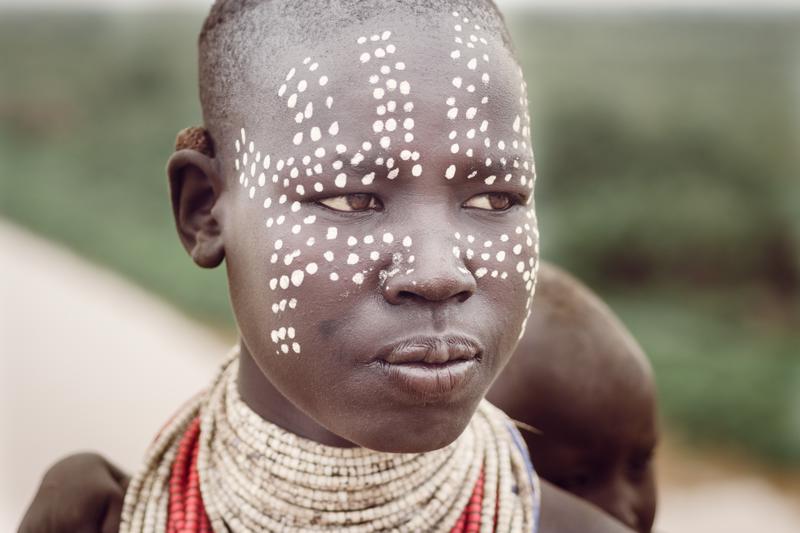
That’s why as part of our “Travel Tips” series we interviewed Marcello Arrambide, who traveled throughout Ethiopia for roughly three months and lived there for two months.
Marcello share’s with us his Ethiopia travel advice and knowledge on what to do in Ethiopia Africa, as well as some information about safety, what to prepare before you go, and how to get around.
Take it away Marcello…
- Why Visit Ethiopia?
- Is Ethiopia Safe to Travel?
- What to Prepare for an Ethiopia Trip
- Best Things to See and Do in Ethiopia
- Where to Eat in Ethiopia
- Where to Stay in Ethiopia
- What's the Best Way to Get to and Around Ethiopia?
- Is Ethiopia WiFi friendly?
- Best Time of Year to Visit Ethiopia
- Final Word of Advice for Traveling to Ethiopia
- More Northern Africa Travel Tips
Why Visit Ethiopia?
Ethiopia has a tremendous amount of history and culture and is one of the most ancient civilizations that we have today.
It is one of the only places in the world that has a completely unique culture that isn’t similar to others.
The costs of traveling to Ethiopia are extremely cheap, the food is delicious, crime is almost nonexistent, and if you like coffee why not go to the place that invented it?
But first, real talk…
Is Ethiopia Safe to Travel?
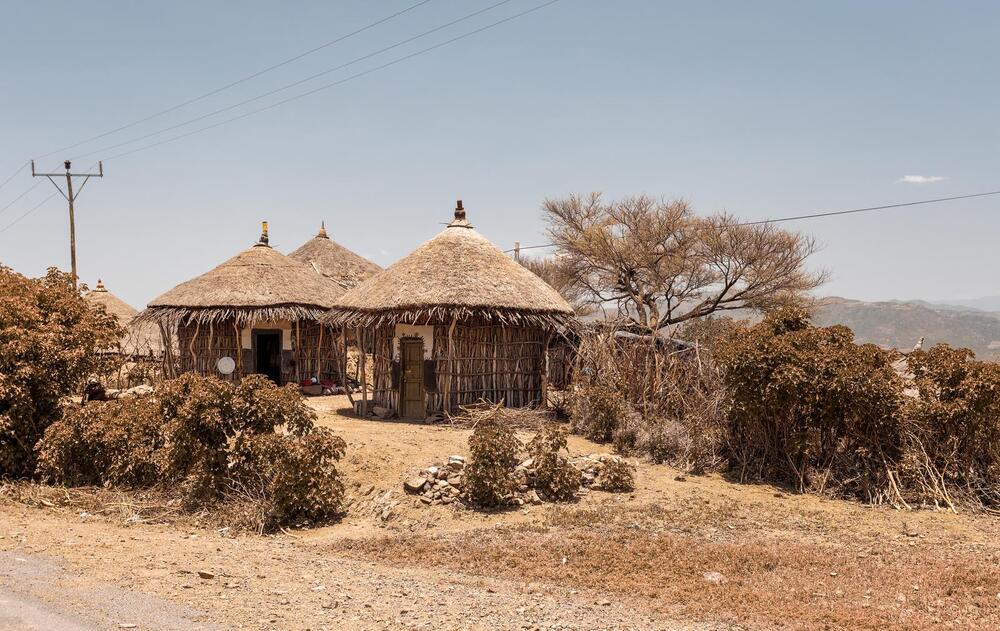
Safety in Ethiopia is an issue, and we’re not going to lie to you. Most people will tell you it’s safe, but we would advise against visiting unless on an organized tour – safety in numbers, and all that.
The UK Gov, U.S. embassy and Australian government says not to visit Ethiopia for non-essential travel due to armed conflict, civil unrest and rising tensions between tribes.
The truth is, anything can happen in Ethiopia. While it’s generally safer in areas such as Addis Ababa, terrorists can attack with little warning and the security forces are not always able to stop it from happening.
However, crimes against tourists are relatively low. Tourists may encounter petty crimes such as pickpocketing, mugging and vehicle theft, but assaults and terrorism have been known to happen.
It’s also not uncommon to hear about terrorists kidnapping foreigners, though this is very rare. If you stay in a large group, and stick to public places and touristy areas, you minimize the risk of getting caught up with the local violence.
You should also make sure to stay away from demonstrations and large gatherings.
You can also avoid civil unrest in Ethiopia by staying clear of the dangerous areas.
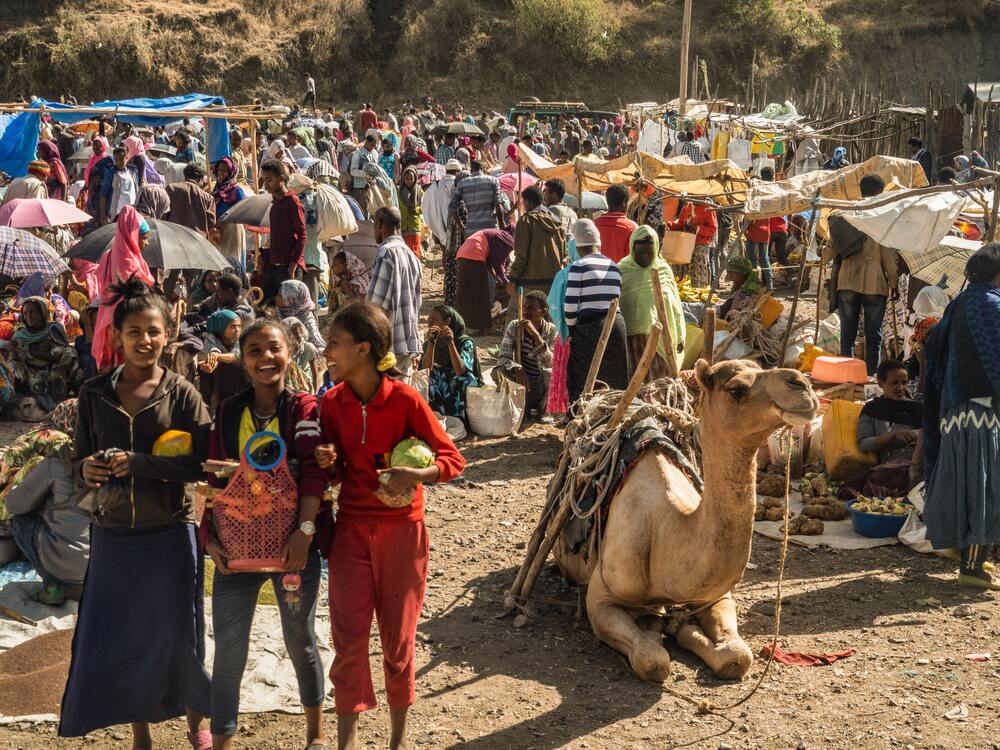
It’s not recommended to travel to areas on the Ethiopian border with Sudan, South Sudan, Eritrea, Kenya, Somali Regional State or the Gambela Regional State.
The border roads are where most of the clashes between armed groups happen, so stay clear of those.
The Regional State of Tigray and the northern territories of the Amhara Region and Afar Region bordering Tigray, and the East and West Wollega Zones in Oromia Regional State and Benishangul Gumuz Regional State, are also considered unsafe.
There is a peace agreement between Ethiopia and The Regional State of Tigray which has eased some disruption, but the security situation is still not considered totally safe.
Oh and you need to watch out for landmines. Another good reason to book a trip to Ethiopia with an organized tour!
Tours of Ethiopia
If you’re worried about traveling to Ethiopia as an independent traveler, G Adventures offer small-group guided tours for ages 18+.
Check out this 10 Day Discover Ethiopia Tour with G Adventures.
What to Prepare for an Ethiopia Trip

So if we haven’t put you off with our honest word of warning on safety, then read on to find out what you need to prepare before you visit…
Vaccines & Medicine Needed for Ethiopia
As with all African countries, you’re going to need to get some vaccinations before visiting. The following vaccinations are recommended for travel to Ethiopia:
- Hepatitis A
- Up to date Tetanus and MMR vaccine
- Polio
- Yellow Fever if you are travelling from a country in a Yellow Fever Zone (usually South America)
- You should also bring malaria tablets
Medical facilities are scarce in Ethiopia, especially in Addis Ababa and rural areas.
As of February 2023, there are renovations taking place at the Black Lion Hospital in Addis Ababa, which means you are less likely to receive medical assistance and if you do, it will be expensive.
If you plan to hike the Simien Mountains and Bale Mountains, bring altitude sickness pills, as medical evacuation is very expensive.
Basically, wear insect repellent and try not to get seriously sick and you shall be fine.
Visa Requirements for Ethiopia
Most countries need a visa to travel to Ethiopia, even other African Nationals. You can check the visa requirements for your country here.
You need to have a valid passport with at least six months left until expiry, and two empty pages for your visa to enter Ethiopia.
ATMs and Credit Cards
ATMs are limited in most areas in Ethiopia and it’s not common for places to accept cards.
The major banks in the city usually accepts international cards for withdrawals.
Our advice is to book and pay for tours and hotels online beforehand, and then only take out as much cash as you need. You don’t want to carry too much cash due for safety reasons.
Side note: ATMs are often not working, so you may need to try a few until you get one that works.
Best Things to See and Do in Ethiopia
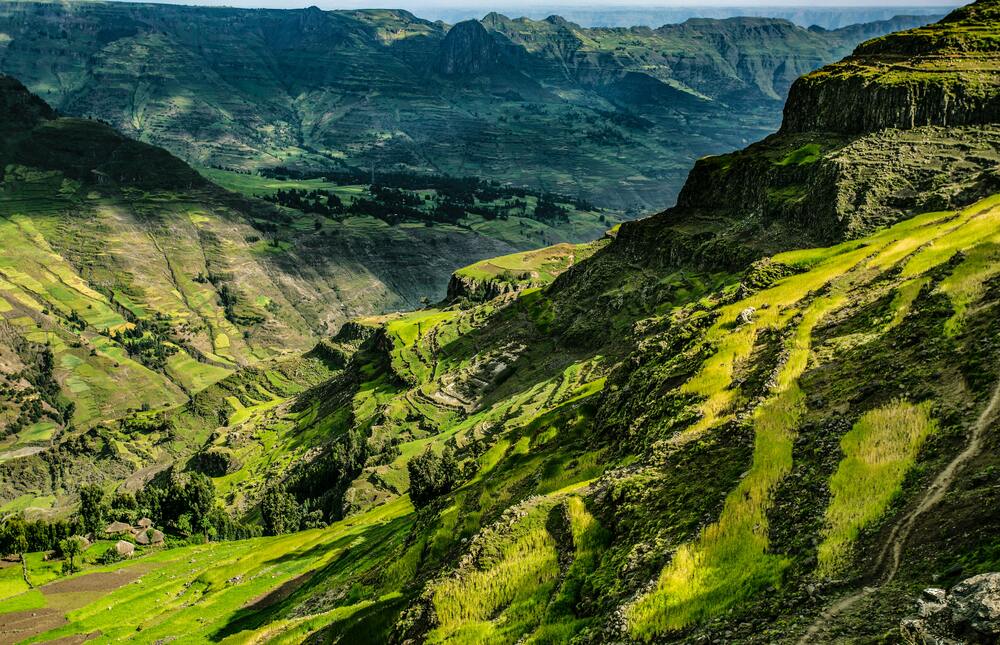
Ethiopia has so many incredible tourist attractions worth visiting. The Omo Valley is a very interesting cultural experience as they are one of the last parts of the world that haven’t been influenced by the western world.
Ethiopia is the only place you can access Somaliland (Somalia), the real-life Camelot can be found in Gondar, the second Jerusalem in Lalibela, and the history of a powerful empire in the city Axum.
Don’t forget the bustling an interesting capital, Addis Ababa, that can easily be called the capital of Africa. Once you head to the East you can visit the fourth most religious city for Muslims in Harar and feed hyenas.
Best Areas to Explore in Ethiopia
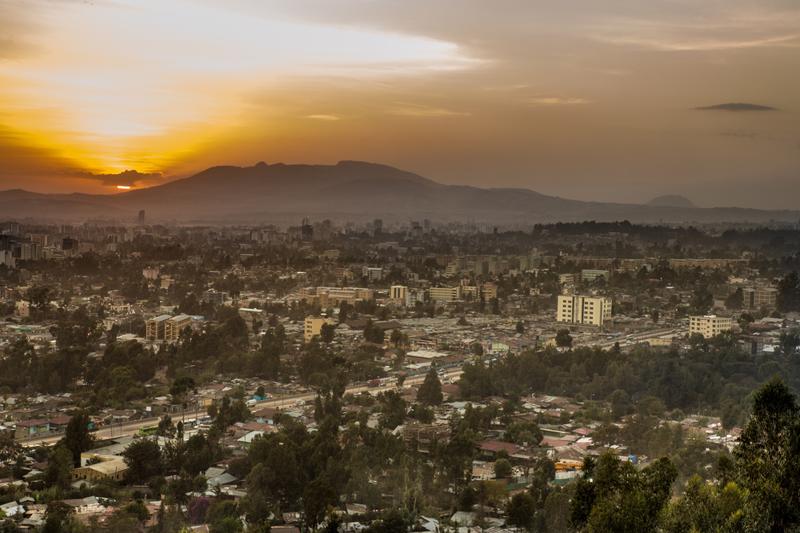
• Addis Ababa
• The Northern circuit; Axum, Gondar, & Lalibela, Semene Mountains
• The Southern Circuit: Awasa, Omo Valley, Rift Valley Lakes
Markets or Shopping Districts in Ethiopia
Addis Ababa is home to Merkato which is one of the largest markets in Africa and the largest open air market on the continent.
To add to the interesting nature of the surrounding area, this is a Muslim neighborhood where you can find very interesting people and things to see.
Major Events and Festivals in Ethiopia
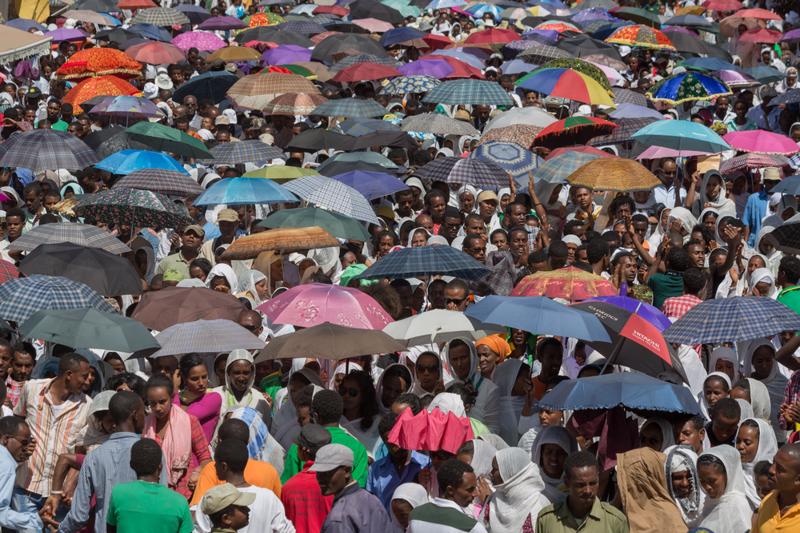
Timkat, Timkat, Timkat! This is where Ethiopians celebrate Epiphany, commemorating the baptism of Jesus in the river of Jordan. It’s one of the most colorful and best festivals to witness in the country. Timkat is celebrated on January 11th.
Meskel, or finding of the true cross, is also a large celebration where we can see thousands of people celebrating, eating, singing, and an endless amount of flowers being thrown.
I would also recommend that you check out the new year celebrations that are held on September 1 every year. Consider that Ethiopians have their own calendar (dates listed above are in a Western calendar).
Where to Eat in Ethiopia

I tended to already stay away from restaurants and big hotel chains to eat and Ethiopia proved that right. The food is already extremely reasonable and the best places to eat in Ethiopia are in local restaurants.
Anyone is going to serve you some of the best coffee you ever had and the prices many times will be under two or three dollars. There aren’t many street vendors in Ethiopia, the local restaurants are the way to go.
You Can’t Visit Ethiopia Without Eating…
Food in Ethiopia is very unique, while they do have popular choices like many varieties of meat, the sponge like bread called Ingera is unique to their culture and country.
Most Ethiopians eat with their hands and you typically pick up your food with the engineer of bread. You have to try the lamb or beef tibs.
Where to Drink Coffee in Ethiopia
I kid you not when I tell you that I used to drink six or seven machiatos every day because the coffee was that good. There is a coffee ceremony that you should definitely experience which is very unique.
You can find the coffee anywhere in the country including local cafés, hotels, restaurants, and corner stores.
Where to Stay in Ethiopia
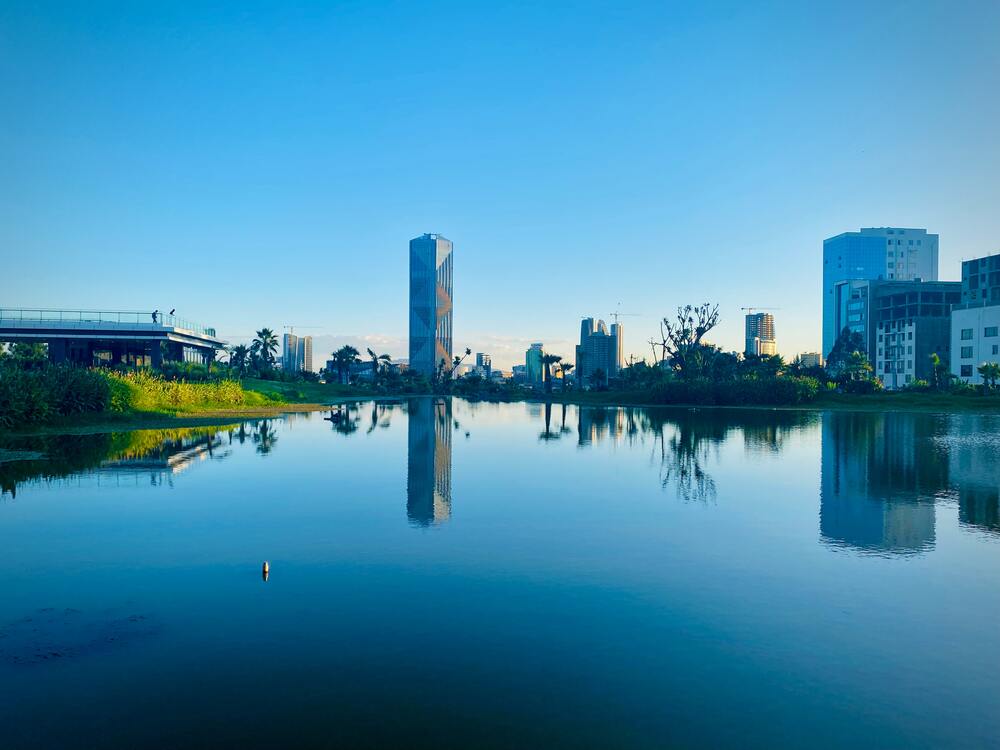
Accommodation in Ethiopia is very reasonable, even in the developed cities like Addis Ababa you’re going to pay anywhere between $7-$15 a night for a private room with a shared bathroom, and up to $20 to $30 for a private room and bathroom.
When choosing a place to stay, we recommend choosing a hotel with a name you know already, or at a hotel with plenty of high-rated reviews.
What’s the Best Way to Get to and Around Ethiopia?
Traveling around the country is very cheap, if you’re going over long distances I would recommend that you fly. I bought two round-trip tickets to three different cities for only $210, the roads are atrocious between cities so it is best to fly since the prices are so cheap.
Within city limits you can use local transport which depending on the city can be a combination of toyota vans, three wheeled tuk tuks, and even motorcycle taxis.
Getting There and Away
The best way to get to Ethiopia would be to fly directly into the country. Flying between countries in Eastern Africa is tremendously expensive and considering the mountainous region that Ethiopia lies in it’s very hard to get information during countries.
The only border that can be crossed by land is via Kenya and even that has seen significant problems. Fly into the capital Addis Ababa, Ethiopian Airlines is one of the best airlines in Africa.
Is Ethiopia WiFi friendly?
The only thing that Ethiopia does not have is good Internet access, after the war with Eritrea their access to the coast was cut off along with its Internet access. The only place to find good Internet access is a large hotel chains.
It does not have to be a brand name hotel like Hilton or Sheraton but make sure you find a big hotel and you will surely find Internet access.
Most of the time you will be able to find it for free as well as long as you buy something, my favorite is six or seven machiatos.
Best Time of Year to Visit Ethiopia
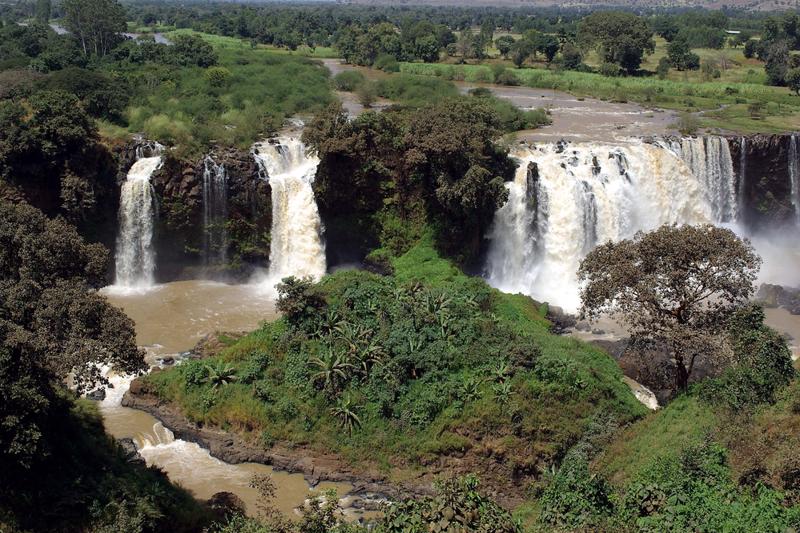
The best time overall to visit the country would be in the fall between September to December. You can avoid the rainy season (July – September) in most parts of the country and the weather is also very temperate.
When I was living in Addis Ababa, the days were warm, but not hot, and the evenings were very cool.
Surprisingly, the hottest month is May, which is the driest month of the year and right before the rainy season in the summer.
Final Word of Advice for Traveling to Ethiopia

Many people don’t know that Ethiopia is the religious homeland for Rastafarians (mostly Jamaicans). The last King of Ethiopia is their God and there is a city just outside Addis Ababa which can be considered the Jamaican homeland.
It’s a surreal experience to go to Africa and see all the Rastas around, definitely something you should check out.
I love Ethiopia because Ethiopian culture resembles no other and being such an ancient civilization it’s extremely interesting and fascinating to get to know.
Supposedly, their history descends directly King Solomon. It is extremely cheap, the people are friendly, open to new cultures and people, and the women are beautiful.
We hope this guide helped you plan your trip to Ethiopia and gave you some practical advice for visiting the country.
Bio: Marcello Arrambide is a day trader that has been living overseas in 10 countries across 4 continents. You can find out more about Marcello on his travel blog WanderingTrader, on his Day Trading Academy site, as well as on Facebook .
More Northern Africa Travel Tips
Are you planning to visit other parts of North Africa? Then you may find the following resources helpful.
- Reasons to Visit Morocco
- Things to do in Marrakesh, Morocco
- Things to Do in Santa Cruz de Tenerife, Canary Islands
- Things to do in the Canary Islands
- Experiences Egypt Has To Offer Different Travel Tastes
- How to Become a Master of Baksheesh in Egypt
- What to do in Cairo, Egypt
Have you been to Ethiopia and have some more Ethiopia Travel advice? Let us know in the comments!